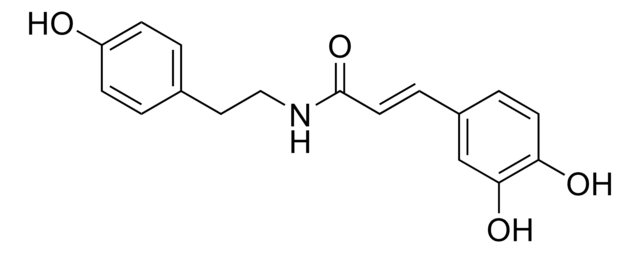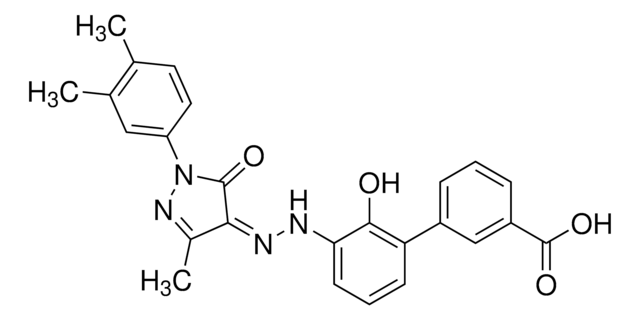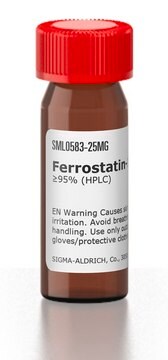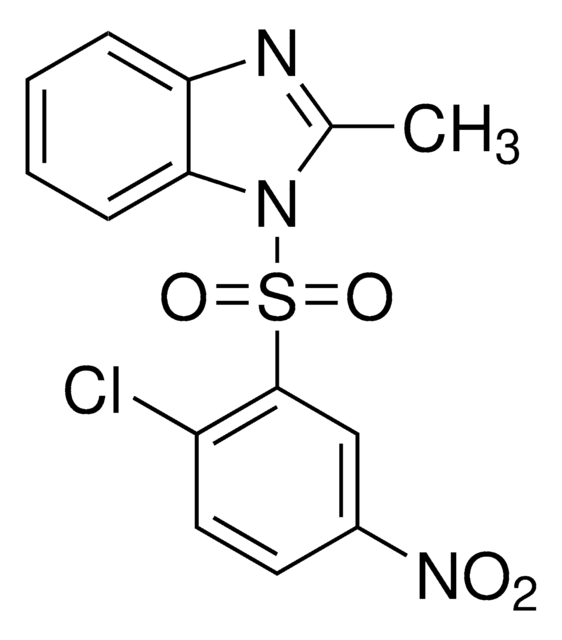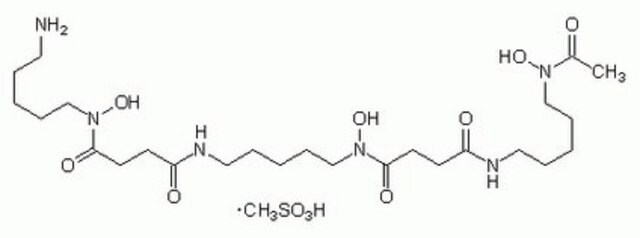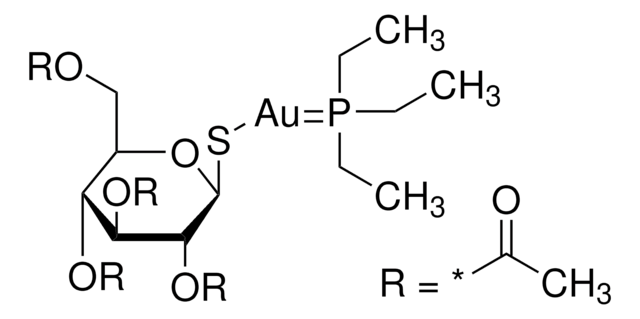375240
HNF4 Antagonist, BI6015
The HNF4 Antagonist, BI6, also referenced under CAS 93987-29-2, controls the biological activity of HNF4.
Sinonimo/i:
HNF4 Antagonist, BI6015, 2-Methyl-1-(2-methyl-5-nitrophenylsulfonyl)-1H-benzo[d]imidazole, Hepatocyte Nuclear Factor4 Antagonist
About This Item
Prodotti consigliati
Livello qualitativo
Saggio
≥99% (HPLC)
Forma fisica
powder
Produttore/marchio commerciale
Calbiochem®
Condizioni di stoccaggio
OK to freeze
protect from light
Colore
beige
Solubilità
DMSO: 10 mg/mL
Condizioni di spedizione
ambient
Temperatura di conservazione
2-8°C
Stringa SMILE
CC1=NC2=C(N1S(C3=CC([N+]([O-])=O)=CC=C3C)(=O)=O)C=CC=C2
InChI
1S/C15H13N3O4S/c1-10-7-8-12(18(19)20)9-15(10)23(21,22)17-11(2)16-13-5-3-4-6-14(13)17/h3-9H,1-2H3
ILVCPQPMRPHZSG-UHFFFAOYSA-N
Descrizione generale
Azioni biochim/fisiol
HNFα & γ
Confezionamento
Attenzione
Altre note
Note legali
Codice della classe di stoccaggio
11 - Combustible Solids
Classe di pericolosità dell'acqua (WGK)
WGK 2
Punto d’infiammabilità (°F)
Not applicable
Punto d’infiammabilità (°C)
Not applicable
Certificati d'analisi (COA)
Cerca il Certificati d'analisi (COA) digitando il numero di lotto/batch corrispondente. I numeri di lotto o di batch sono stampati sull'etichetta dei prodotti dopo la parola ‘Lotto’ o ‘Batch’.
Possiedi già questo prodotto?
I documenti relativi ai prodotti acquistati recentemente sono disponibili nell’Archivio dei documenti.
Il team dei nostri ricercatori vanta grande esperienza in tutte le aree della ricerca quali Life Science, scienza dei materiali, sintesi chimica, cromatografia, discipline analitiche, ecc..
Contatta l'Assistenza Tecnica.
